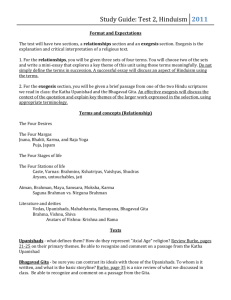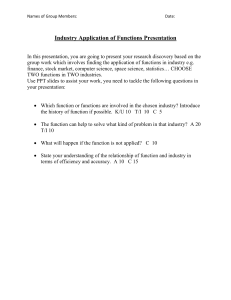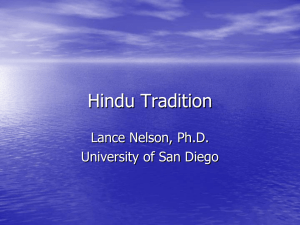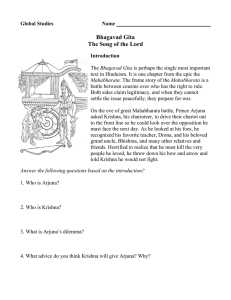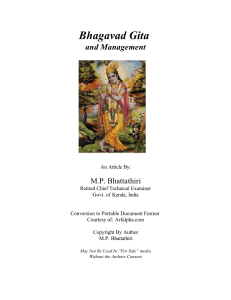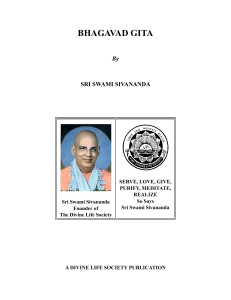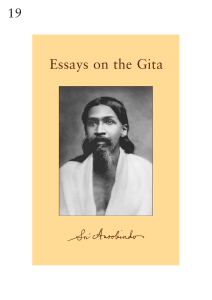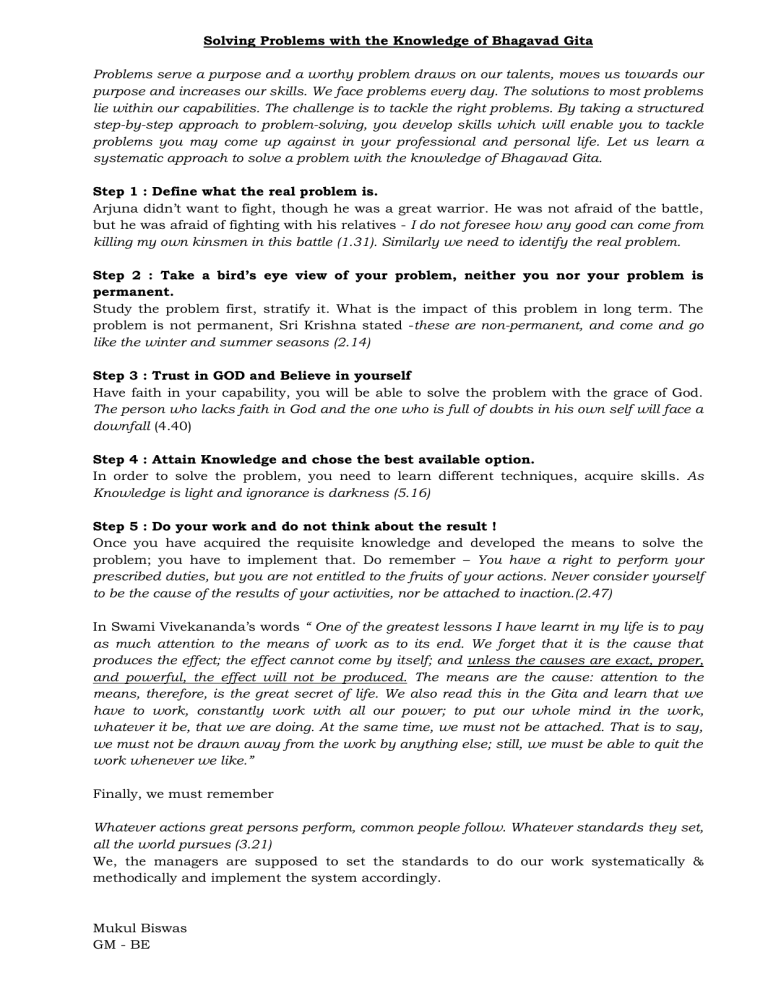
Solving Problems with the Knowledge of Bhagavad Gita Problems serve a purpose and a worthy problem draws on our talents, moves us towards our purpose and increases our skills. We face problems every day. The solutions to most problems lie within our capabilities. The challenge is to tackle the right problems. By taking a structured step-by-step approach to problem-solving, you develop skills which will enable you to tackle problems you may come up against in your professional and personal life. Let us learn a systematic approach to solve a problem with the knowledge of Bhagavad Gita. Step 1 : Define what the real problem is. Arjuna didn’t want to fight, though he was a great warrior. He was not afraid of the battle, but he was afraid of fighting with his relatives - I do not foresee how any good can come from killing my own kinsmen in this battle (1.31). Similarly we need to identify the real problem. Step 2 : Take a bird’s eye view of your problem, neither you nor your problem is permanent. Study the problem first, stratify it. What is the impact of this problem in long term. The problem is not permanent, Sri Krishna stated -these are non-permanent, and come and go like the winter and summer seasons (2.14) Step 3 : Trust in GOD and Believe in yourself Have faith in your capability, you will be able to solve the problem with the grace of God. The person who lacks faith in God and the one who is full of doubts in his own self will face a downfall (4.40) Step 4 : Attain Knowledge and chose the best available option. In order to solve the problem, you need to learn different techniques, acquire skills. As Knowledge is light and ignorance is darkness (5.16) Step 5 : Do your work and do not think about the result ! Once you have acquired the requisite knowledge and developed the means to solve the problem; you have to implement that. Do remember – You have a right to perform your prescribed duties, but you are not entitled to the fruits of your actions. Never consider yourself to be the cause of the results of your activities, nor be attached to inaction.(2.47) In Swami Vivekananda’s words “ One of the greatest lessons I have learnt in my life is to pay as much attention to the means of work as to its end. We forget that it is the cause that produces the effect; the effect cannot come by itself; and unless the causes are exact, proper, and powerful, the effect will not be produced. The means are the cause: attention to the means, therefore, is the great secret of life. We also read this in the Gita and learn that we have to work, constantly work with all our power; to put our whole mind in the work, whatever it be, that we are doing. At the same time, we must not be attached. That is to say, we must not be drawn away from the work by anything else; still, we must be able to quit the work whenever we like.” Finally, we must remember Whatever actions great persons perform, common people follow. Whatever standards they set, all the world pursues (3.21) We, the managers are supposed to set the standards to do our work systematically & methodically and implement the system accordingly. Mukul Biswas GM - BE

